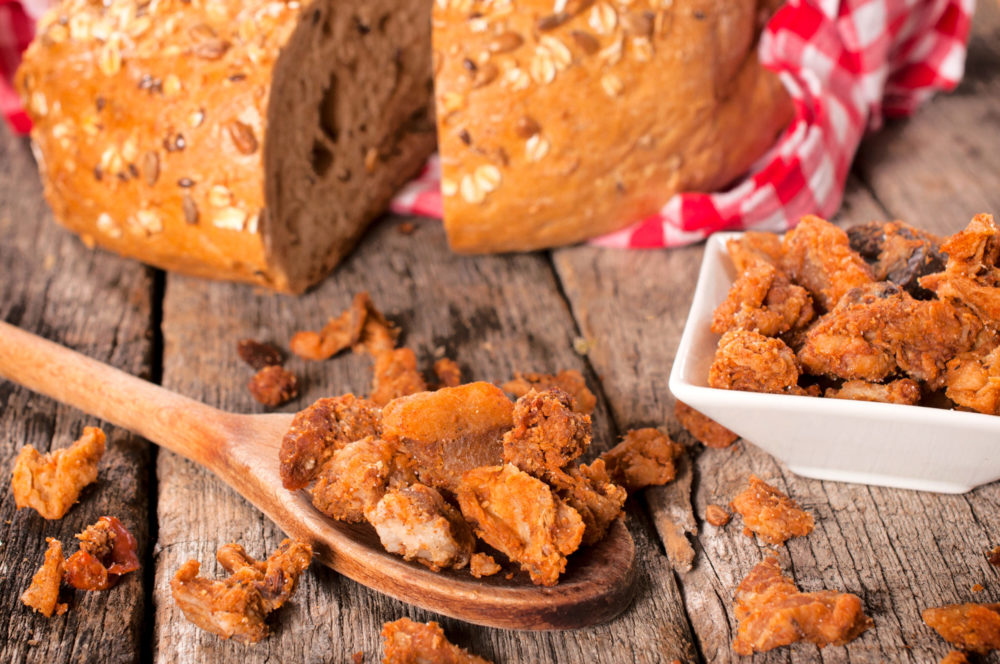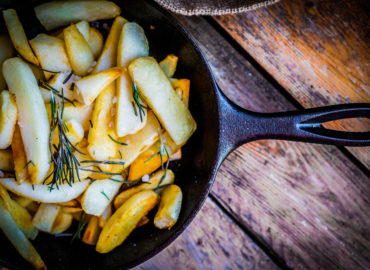According to a United Nations report, one-third of all food grown and produced on this planet will end up getting tossed. Americans in the United States are among the biggest culprits, averaging about 210 to 255 pounds of food waste per person per year. Some of this happens at farms and manufacturing plants; however, a far more significant portion of the food waste pie occurs in homes and businesses that directly serve consumers (such as grocery stores, dining centers, and restaurants), a Feeding America analysis reveals.
Chef-Approved Ways to Use Leftovers
- Turn tahini into a versatile dip
- Mix Up a next-level chicken salad
- Channel your pesto powers
- Wrap and roll
- Toss together fried rice
- Stir-Fry up a storm
- Blend a creamy Aioli
- Do the Scramble: “If I’m baking a recipe that calls for more yolks than whites, rather than pouring the whites down the sink, I save them to scramble for breakfast,” Chef Moreno says. Crack a whole egg for the just-right dose of satisfying fat and sauté in a handful of vegetables for a fiber boost.
- Try a Starch-Based Salad
- Start Your Meal with Satays
- Add Depth to Soups and Stews
Are leftovers good for your health?
Eating too much leftover food can be harmful to your health if not kept or prepared correctly. Leftover food can be kept for three to four days in the refrigerator. But make sure that you eat them within that time. If the food is kept for a longer time and then consumed, it could lose its nutritional value.
Leftovers can definitely be a healthy choice. With the exception of unhealthy foods such as fried leftovers, dishes that have been previously cooked can be just as nutritious and beneficial to your body because you won’t be adding anything new to them. In other words, leftover foods are already pre-packaged with all of their nutritional components. However, you might want to avoid eating heavy leftovers late at night because they can cause indigestion.
Eating leftovers is a convenient way to reduce food waste, it saves time and effort, is usually cheaper than cooking an entire fresh meal, and they’re just as nutritious! So, what are some ways to ensure there are leftovers to eat?
Here are some tips:
- Cook extra servings of rice, pasta, and potatoes. These foods can be used in various dishes to create new meals that will have plenty of leftovers.
- If you’re cooking meat or chicken, cook twice as much as you planned on eating so that you can use it in another meal.
- Make extra servings of soup or chili. These are perfect meals to freeze and save for a night when you’re too tired to cook anything!
- If you’re preparing a casserole, make two or even three pans at once. This will ensure that you have plenty of leftovers that will last for several days.
- If you love sandwiches, make your own instead of buying them at the store. You can buy larger quantities of meat and cheese in bulk, saving you more money when you make these meals at home.
- Eat leftovers for breakfast! Most people don’t enjoy eating leftover rice or pasta cold out of the refrigerator; however, if you’re in a time crunch in the morning, toast leftovers to make them taste fresh again.
Leftover food benefits
- Eating leftovers makes meal planning easier
- Having leftovers helps decrease your grocery bill
- Leftovers reduce your time in the kitchen
- Leftover meals are versatile
- Eating leftovers means no skipped meals
As a single parent on a budget, I often scramble to figure out what to make for dinner. I usually fix something that sounds good at the time, but when mealtime rolls around, I’m not always in the mood for it anymore. So, what are some benefits of eating leftovers?
Leftovers are a great way to reduce food waste. They are usually tasty and will save you time and effort because you can just heat them and serve them again. Also, they’re less expensive than preparing a new meal, and you won’t have to throw out the food that goes bad in your refrigerator. They can also be much easier and faster to prepare.
What are some financial benefits?
Eating leftovers is a great way to save money for several reasons. First, you won’t have to buy as much food, which will minimize your weekly grocery bill. Also, when you make extras of certain dishes, you can freeze them and save them for later, eliminating the need to buy takeout because you don’t have time to cook.
Eating leftovers also saves time because you don’t have to cook every day. You can make large meals on the weekend or on certain days when you have more free time and freeze the extra servings so that they’re ready to heat up later!
How do I get my kids to eat leftovers?
When preparing leftovers for my kids, who complain about eating them, I have a little trick to get them to eat them without realizing it.
Before preparing a dish or serving a meal, I place a small amount of food on a plate and feed my children what appear to be leftovers. Afterward, when they eat their regular dinner, I will re-serve the dish again, but this time, I will replace the food I used as a secret taste test with the actual leftovers.
This way, they know that if they didn’t like what was on their plate during this little trick of mine, it wasn’t actually “leftover,” but they never know the difference, and most times, they end up asking for more!
This is a great tip because studies show that not only does it help build good eating habits in children, but it also helps them learn to appreciate foods they may otherwise have rejected.
Start your day off right with leftover breakfast! Leftover pancakes are even better the next day once they are cold. Plus, you can freeze extra leftover pancakes to pull them out later when you are in a hurry. Souffles also taste better the next day after they have had time to settle. You can even make leftover dinners into sandwiches the kids will love.
How do I store my leftover food?
When storing your leftovers, always use airtight glass containers such as mason jars, plastic containers with snap-on lids, or resealable plastic bags. This will ensure that your food stays fresh and uncontaminated. You should also be careful when reheating leftovers because they can quickly become contaminated if you don’t do it properly. Plates and utensils that have touched raw meat should not be used to serve or eat food that is cooked.
Eating leftovers can save you a lot of time and money and be good for your health! What are your favorite methods for making sure there are always leftovers?





